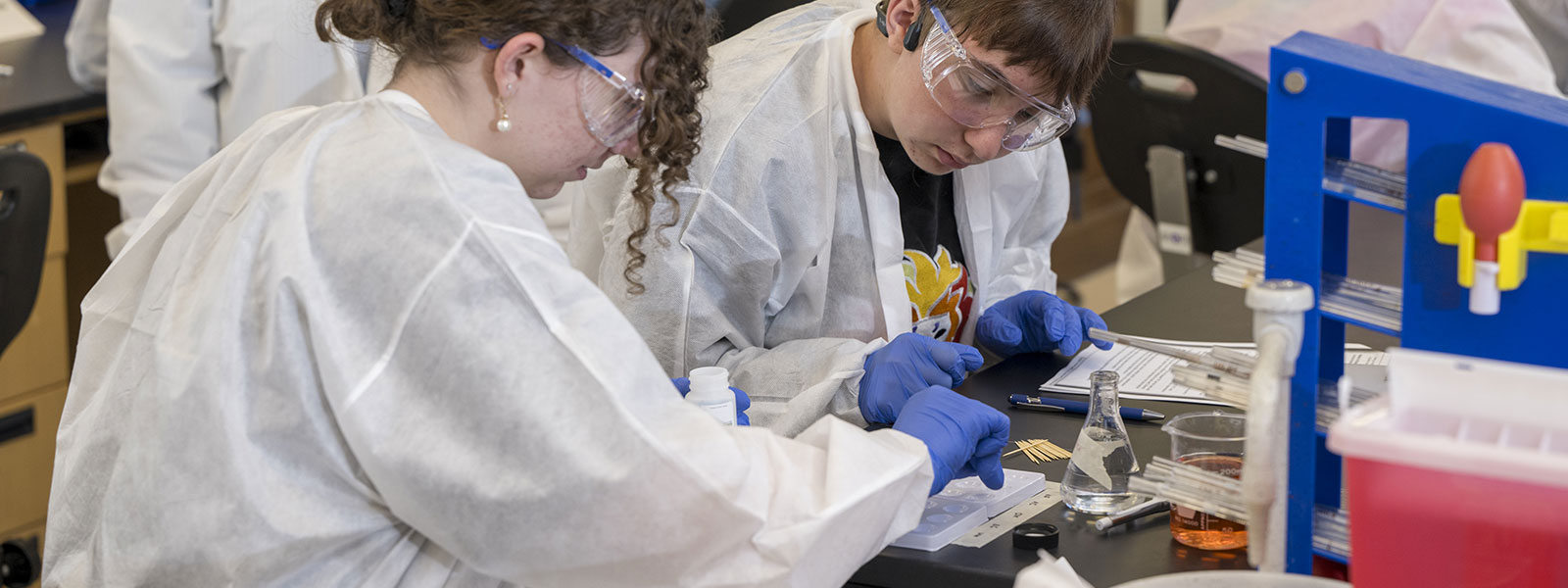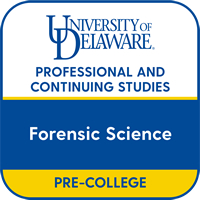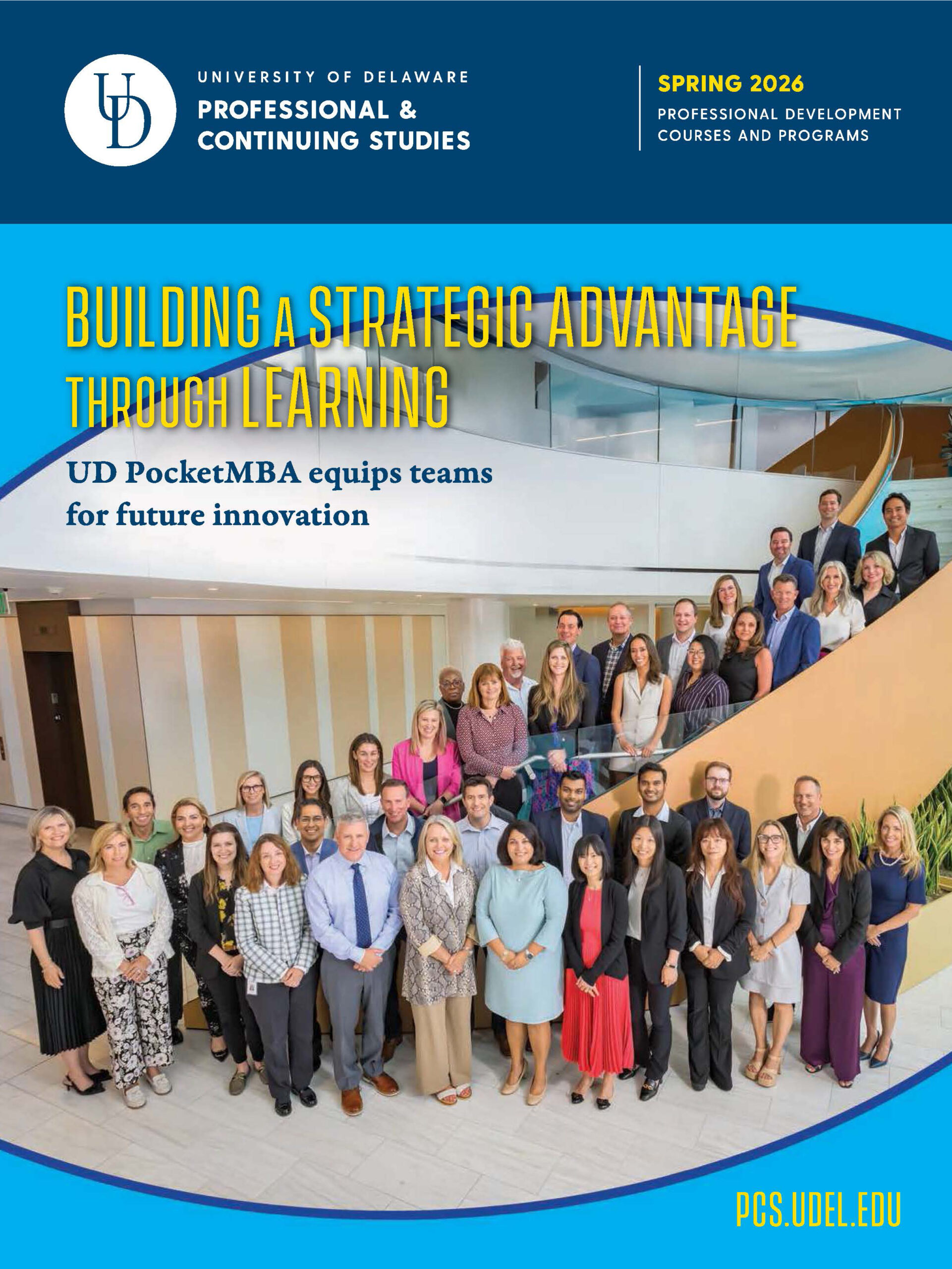
For high school students interested in biomedical sciences, laboratory medicine, biotechnology, criminal justice and crime scene investigation
June 22-26, 2026 (Monday-Friday) 
University of Delaware, Newark Campus

- Solve a mystery while you learn the basics of forensic analysis
- Gain hands-on lab experience, along with site visits to crime investigation units
- Learn from UD forensic experts who work in the field
- Visit crime labs and crime scene investigation units
- Receive a personalized program reference letter for your college application portfolio, plus a digital badge to display on social media or online profiles
- Potential financial options available—Discounts or scholarship opportunities are available for military and veterans, UD employees, UD alumni, and two or more siblings from the same family; see details below.
Take on the challenges critical to providing evidence that solves a criminal case in this one-week program designed for high school students interested in real-world forensic techniques!
In this noncredit program led by UD faculty and forensic experts from the Department of Medical and Molecular Sciences, students will experience what it’s like to work a crime scene and process evidence in state-of-the-art laboratories at the University of Delaware and off campus. Field trip day is subject to change based on location availability.
Students will work in groups to produce and present “court-ready” reports to a panel of forensic scientists from Delaware’s Division of Forensic Science and the Delaware State Police in the program’s capstone experience.
Explore the Future of Forensic Science
Get a behind-the-scenes look at the University of Delaware’s Forensic Science program in this 2025 video spotlight. Hear from instructors and students as they share how this hands-on, interdisciplinary program prepares professionals to meet the growing demand for forensic expertise in law enforcement, healthcare, cybersecurity and beyond.
Program details
Forensic Science Pre-College Summer Program — Noncredit Program ![]()
LOCATION: Willard Hall Education Building, University of Delaware, 16 West Main St., Newark, Del. – Housing is not provided; rooms can be reserved at the Hyatt Place Newark/Main Street at a special group rate. At least one guest in each room must be 21 or older.
SCHEDULE: June 22-26, 2026, 9 a.m.-4 p.m., Monday-Friday
PRICE: $1,995, all materials included.
REGISTRATION DEADLINE: June 8
NONCREDIT CONTACT HOURS: 3.0 CEUs (3.0 Continuing Education Units / 30 contact hours)
TECHNOLOGY REQUIREMENT: Students must bring their own laptop on Monday, Tuesday, Wednesday and Friday.
LUNCH: Students should bring their own lunch or bring funds for local lunch for the first four days of the program. Lunch is provided on the last day of the program.
Financial options available
Only one discount or scholarship award can apply per registration.
EARLY REGISTRATION (April 1 deadline): Use coupon code EBIRD to receive a 10% discount when registering by April 1.
DISCOUNTS: A 15% discount is available for dependents of military members and veterans, UD employees and UD alumni, or two or more siblings registering from the same family. For details or to receive the discount code, please email continuing-registration@udel.edu.
PARTIAL SCHOLARSHIPS: Partial need-based scholarships are available in the amount of a $495 scholarship award
Who should participate in this program?
This weeklong noncredit program is designed for high school students (rising high school sophomores, juniors or seniors) with an interest in biomedical sciences, laboratory medicine, biotechnology, criminal justice and crime scene investigation as potential career choices. To participate, students must have credit for at least one high school level biology or general science course.
Safety information
Personal safety equipment (safety goggles/gloves and disposable lab coats and extensive safety training will be provided for students. Long pants and closed-toe shoes (e.g. sneakers) must be worn.
Students in this program may be exposed to mature images, including but not limited to photographs of crime scenes and forensic investigations, which may contain sensitive content. These materials are an essential part of the curriculum and will be used responsibly and with sensitivity. Students may request to step away during the presentation of said material.
Course outline
- Day 1: Crime scene investigation, evidence collection, forensic photography, fingerprinting and impression evidence
- Day 2: Forensic toxicology
- Day 3: Forensic chemistry; DNA analysis, including polymerase chain reaction (PCR) tests
- Day 4: Field trips to Division of Forensic Science in Wilmington and Troop 2 Evidence Unit in Bear. (Field trip destinations are subject to change based on location availability.)
- Day 5: Project presentations and lunch with forensic panelists (lunch provided)
Learner outcomes
Participants will get hands-on experience with:
- Documenting a crime scene and collecting physical evidence
- Using the chemical and immunologic assays common in forensic science
- Applying genetic science essential to DNA profiling
- Calculating the probability of matching DNA profiles
- Performing forensic toxicological analyses
- Using fingerprinting techniques and analysis
- Applying firearms and ballistics data
- Providing courtroom testimony as an expert witness
Instructional team
Anthony C. DiNardo, Automated Fingerprint Identification System (AFIS) section administrator for the Delaware State Police, State Bureau of Identification
Anthony C. DiNardo served as a sworn law enforcement officer for 21 years and as a detective in the Crime Scene Unit in the New Castle County Police Department for 17 years. Following his retirement, he became a forensic latent print examiner for the Delaware State Police and was promoted to AFIS section administrator in 2018.
Jessica Smith, chief forensic toxicologist of the Delaware Division of Forensic Science (DFS)
Jessica Smith manages the operations and staff of the toxicology unit where biological specimens of post-mortem and driving under the influence (DUI) cases are analyzed for drugs and alcohol. The toxicology unit is a team of 11 employees and handles more than 2,100 cases and 9,500 tests per year.
Esther E. Biswas-Fiss, professor and chair of UD’s Department of Medical and Molecular Sciences; director of graduate programs in medical sciences; Director of programs in applied molecular biology and biotechnology in the College of Health Sciences
Esther E. Biswas-Fiss has led the development of undergraduate and master’s biotechnology degree programs at UD, programs accredited by the American Society for Biochemistry and Molecular Biology (ASBMB). Her contributions to research have led to nearly 60 peer-reviewed publications in leading science journals, including Molecular Vision; European Journal of Ophthalmology; Journal of Biological Chemistry; and Biochemistry.
Heather Walters, instructor in the Department of Medical and Molecular Sciences at UD; director of UD’s minor in forensic science
Heather Walters’ extensive knowledge of sample processing and molecular laboratory techniques comes from her 20 years of work in the clinical laboratory at ChristianaCare and her 17 years of teaching at UD. Her expertise is in medical microbiology.


